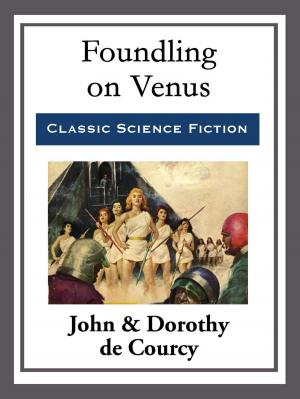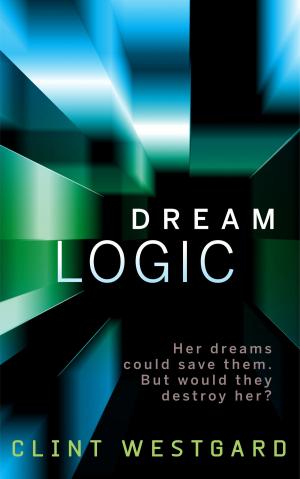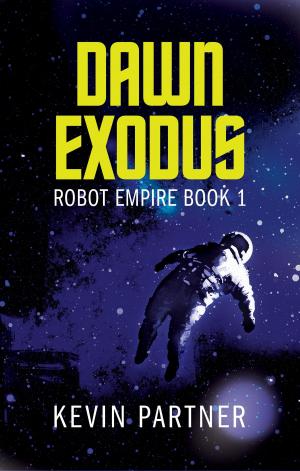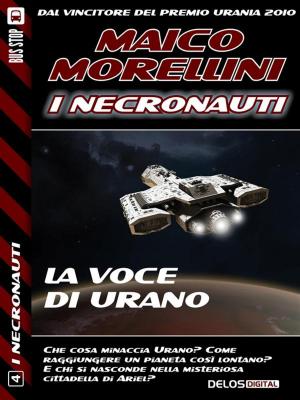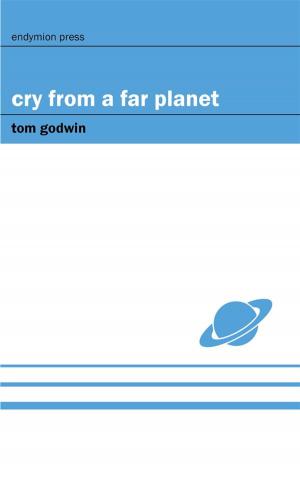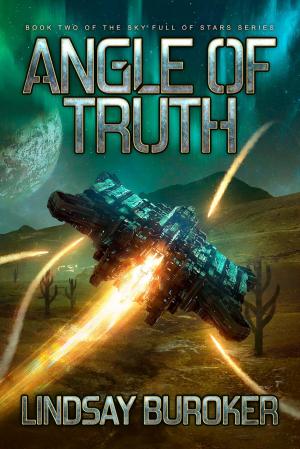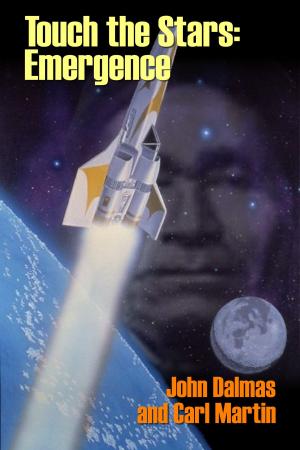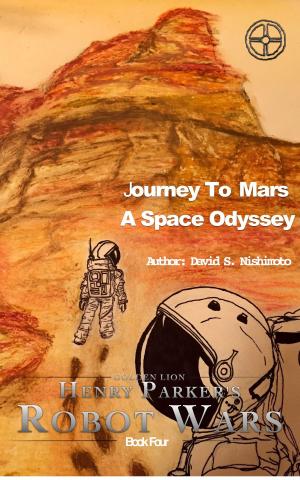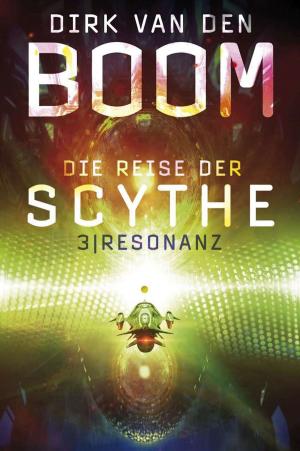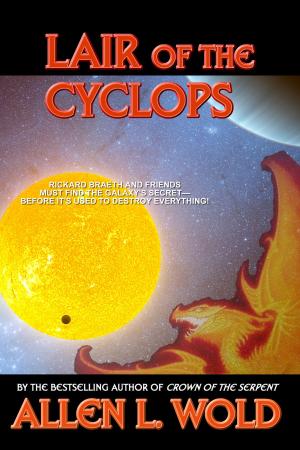| Author: | Faruk Nadkar | ISBN: | 9781301801091 |
| Publisher: | Faruk Nadkar | Publication: | December 12, 2012 |
| Imprint: | Smashwords Edition | Language: | English |
| Author: | Faruk Nadkar |
| ISBN: | 9781301801091 |
| Publisher: | Faruk Nadkar |
| Publication: | December 12, 2012 |
| Imprint: | Smashwords Edition |
| Language: | English |
Two different centuries in earth’s timeline separated by nearly two hundred and fifty years suddenly collide when eighteen year old Dan Clayton – an idealist stargazer since childhood with a passion for astrophysics – becomes the target of a controversy of unprecedented historic proportions in 1985. Born into a renowned American industrialist family Dan is sought by an alien power that is rightfully classified as a cosmic anomaly. That classification comes around because all of the technology available in the mid-eighties cannot detect any space traversing vessels or matter of any kind in the solar system as far as radio telescopes and so forth can identify. Ergo, the anomaly is classified as non-corporeal.
In its quest to make contact with Dan – for some inexplicable uncanny reason – the alien anomaly’s unseen unfelt presence is somehow setting-off bizarre unnatural geological (among other) phenomena that threaten a global scale catastrophe or destroy the planet altogether. At this point – in the first chapter – an alien ship on a strange expedition has entered the Milky Way galaxy. These travelers discover Earth, the anomaly and, particularly, Dan Clayton’s predicament.
The alien crew of the starship makes another mystifying discovery. They can see two periods of Earth’s timeline; 1985 and 2150 through a temporal rift in the fabric of space-time. In order to save the planet the captain of the vessel is convinced by his top officers to transport Dan Clayton to the twenty second century. Their reasoning behind this course of action is the assumption that Dan’s absence from Earth for a period will neutralize the threat. However, the fact of the matter is that in reality it is President Mark Rhodes who is orchestrating this move far in the future in 2150 – for obvious reasons.
Orphans of the Void is based half way into the twenty second century when humanity has successfully colonized the solar system. The year is 2150 and Earth is gearing up to celebrate the bicentennial anniversary of an antiquated form of music, Rock ‘N’ Roll. President Mark Rhodes is in power as the head of the federal government. By far the youngest man ever to head the federation Mark has been involved in an ongoing effort simply titled Project Cosmos. The project itself was a result of what the president calls an indigenously developed branch of knowledge revealed by him as multi-dimensional-automath (acronym: M-DAM). This branch of knowledge has enabled scientists to develop starships with trans-continuum migration capability. In the president’s own words ‘This designation is provisional. Roughly translated trans-continuum migration means that our starship does not traverse distance; instead, it traverses time, faster than time.’
For a brief elucidation, essentially, when a traversing vessel enters the fourth dimension of time it ceases to exist in three dimensional space; additionally, when it traverses the fourth dimension ‘faster than time’, the fourth dimension ceases to exist as well.
At the heart of humanity’s continuing survival in the universe is the new science of M-DAM. It provides a departure from the laws of thermodynamics.
Orphans of the Void explores time space continuum from a very different perspective. It delves into an idea of temporal rifts in space-time continuum. It is filled with vivid imagery of incredible yet believable everyday characters with staunch convictions involved in momentous journeys of discovery instigated by passionate convictions.
Conspiracy is a precursor to the trilogy of The Temporal Chronicles of which Orphans of the Void is the first edition. It will be followed by Houses of the Holy and concluded by Masters of the Ilk. The novel is a socio-scientific extrapolation transcending time and space, integrating elements of suspense, action and adventure into a primary genre of speculative fiction.
Two different centuries in earth’s timeline separated by nearly two hundred and fifty years suddenly collide when eighteen year old Dan Clayton – an idealist stargazer since childhood with a passion for astrophysics – becomes the target of a controversy of unprecedented historic proportions in 1985. Born into a renowned American industrialist family Dan is sought by an alien power that is rightfully classified as a cosmic anomaly. That classification comes around because all of the technology available in the mid-eighties cannot detect any space traversing vessels or matter of any kind in the solar system as far as radio telescopes and so forth can identify. Ergo, the anomaly is classified as non-corporeal.
In its quest to make contact with Dan – for some inexplicable uncanny reason – the alien anomaly’s unseen unfelt presence is somehow setting-off bizarre unnatural geological (among other) phenomena that threaten a global scale catastrophe or destroy the planet altogether. At this point – in the first chapter – an alien ship on a strange expedition has entered the Milky Way galaxy. These travelers discover Earth, the anomaly and, particularly, Dan Clayton’s predicament.
The alien crew of the starship makes another mystifying discovery. They can see two periods of Earth’s timeline; 1985 and 2150 through a temporal rift in the fabric of space-time. In order to save the planet the captain of the vessel is convinced by his top officers to transport Dan Clayton to the twenty second century. Their reasoning behind this course of action is the assumption that Dan’s absence from Earth for a period will neutralize the threat. However, the fact of the matter is that in reality it is President Mark Rhodes who is orchestrating this move far in the future in 2150 – for obvious reasons.
Orphans of the Void is based half way into the twenty second century when humanity has successfully colonized the solar system. The year is 2150 and Earth is gearing up to celebrate the bicentennial anniversary of an antiquated form of music, Rock ‘N’ Roll. President Mark Rhodes is in power as the head of the federal government. By far the youngest man ever to head the federation Mark has been involved in an ongoing effort simply titled Project Cosmos. The project itself was a result of what the president calls an indigenously developed branch of knowledge revealed by him as multi-dimensional-automath (acronym: M-DAM). This branch of knowledge has enabled scientists to develop starships with trans-continuum migration capability. In the president’s own words ‘This designation is provisional. Roughly translated trans-continuum migration means that our starship does not traverse distance; instead, it traverses time, faster than time.’
For a brief elucidation, essentially, when a traversing vessel enters the fourth dimension of time it ceases to exist in three dimensional space; additionally, when it traverses the fourth dimension ‘faster than time’, the fourth dimension ceases to exist as well.
At the heart of humanity’s continuing survival in the universe is the new science of M-DAM. It provides a departure from the laws of thermodynamics.
Orphans of the Void explores time space continuum from a very different perspective. It delves into an idea of temporal rifts in space-time continuum. It is filled with vivid imagery of incredible yet believable everyday characters with staunch convictions involved in momentous journeys of discovery instigated by passionate convictions.
Conspiracy is a precursor to the trilogy of The Temporal Chronicles of which Orphans of the Void is the first edition. It will be followed by Houses of the Holy and concluded by Masters of the Ilk. The novel is a socio-scientific extrapolation transcending time and space, integrating elements of suspense, action and adventure into a primary genre of speculative fiction.

